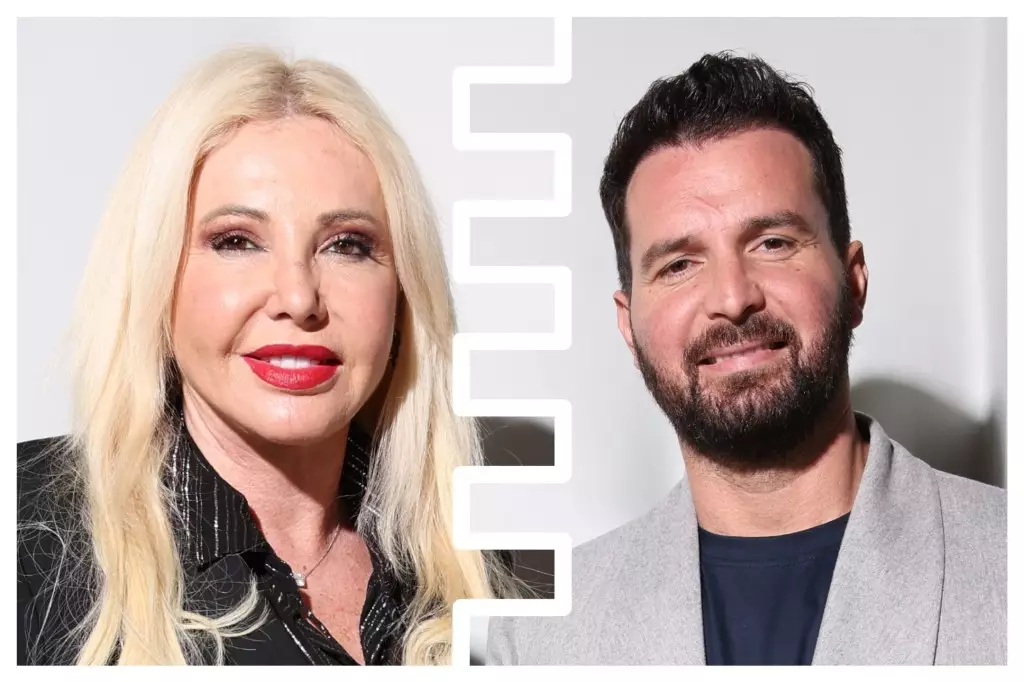The dissolution of the partnership between Monika Bacardi and Andrea Iervolino is unfolding like a high-stakes drama, attracting attention in the film and entertainment industry. Their joint enterprise, Iervolino & Lady Bacardi Entertainment (ILBE), has become the battleground for accusations and legal maneuvers. The recent shareholders’ meeting revealed escalating tensions—a sign that both parties are deeply entrenched in their positions. Prior to this meeting, Iervolino announced a significant shift by stepping down from his role as co-founder and CEO of ILBE to pursue his new venture, The Andrea Iervolino Company (TAIC). This corporate transition marked the beginning of an increasingly public spat, with each party hurling allegations that paint a portrait of professional disarray.
At the recent shareholders’ assembly, ILBE officially resolved to take legal action against Iervolino. Key decisions arising from this meeting also included a rebranding to Lady Bacardi Media S.p.A. This was emblematic of a substantial ideological shift within the company that Bacardi seems intent to spearhead. The appointment of the prestigious Italian law firm Pedersoli Gattai suggests the gravity of the situation. The choice to institute legal proceedings indicates that Bacardi and a faction of shareholders are prepared to fight aggressively to protect their interests and reputations, highlighting a fracture that cannot be mended merely with dialogue.
In what appears to be a calculated response, Iervolino swiftly dismissed the accusations against him—branding them as misconstrued narratives driven by personal animosity rather than grounded evidence. This counter-offensive is crucial for Iervolino, who is seemingly trying to carve out a distinct identity for his new company without the shadows cast by ILBE.
One of the most contentious points of this divide concerns the intellectual property rights associated with films developed under the aegis of ILBE. Bacardi alleges that Iervolino’s attempts to pivot his newfound company towards a production-focused agenda pose a conflict of interest. This reflects broader concerns about the ethical implications of creative collaboration—an intricate web of rights and claims that could have substantive financial repercussions.
Iervolino, in turn, denies any wrongdoing and asserts that his new projects are wholly independent of the works created during his tenure at ILBE. This highlights an often overlooked aspect of business partnerships—the fragility of ownership and the potential for disputes over rights and profits. It sets the stage for an extended legal battle, as both parties seek clarification and, potentially, restitution for what they each perceive as breaches of trust.
The Role of Social Media and Outside Investments
An intriguing subplot in this drama is Iervolino’s alleged connection to the social media platform Tatatu, which has drawn Bacardi’s ire. She contends that his ownership stake—boasting a staggering 96%—influences his decisions negatively, effectively siphoning resources meant for film projects toward his other ventures. The accusation insinuates a dangerous trajectory where personal interests could supersede project integrity, hence creating unfair competition in an already cutthroat market.
This element of social media involvement in traditional film production points to a larger trend where digital platforms and entertainment production are increasingly intermingling. The ramifications of such developments may lead to shifts in how we view media production, business ethics, and stakeholder accountability.
As the lawsuit draws nearer, the industry watches closely to ascertain how this legal saga unfolds. The decisions made during this tumultuous meeting will not only determine the future of ILBE and TAIC but may also set precedents regarding legal and ethical standards in entertainment partnerships. Given the significant positions both Bacardi and Iervolino hold, their ongoing conflicts could reverberate across the global entertainment landscape.
What remains is the unspooling of emotions—rivalry mingled with ambition—that shapes not only the direction of their respective companies but also the overarching narrative of modern entertainment. In an industry that thrives on collaboration yet is riddled with power struggles, the unfolding of the Bacardi-Iervolino tale serves as a cautionary tale about the complexities of partnerships in creative industries.
